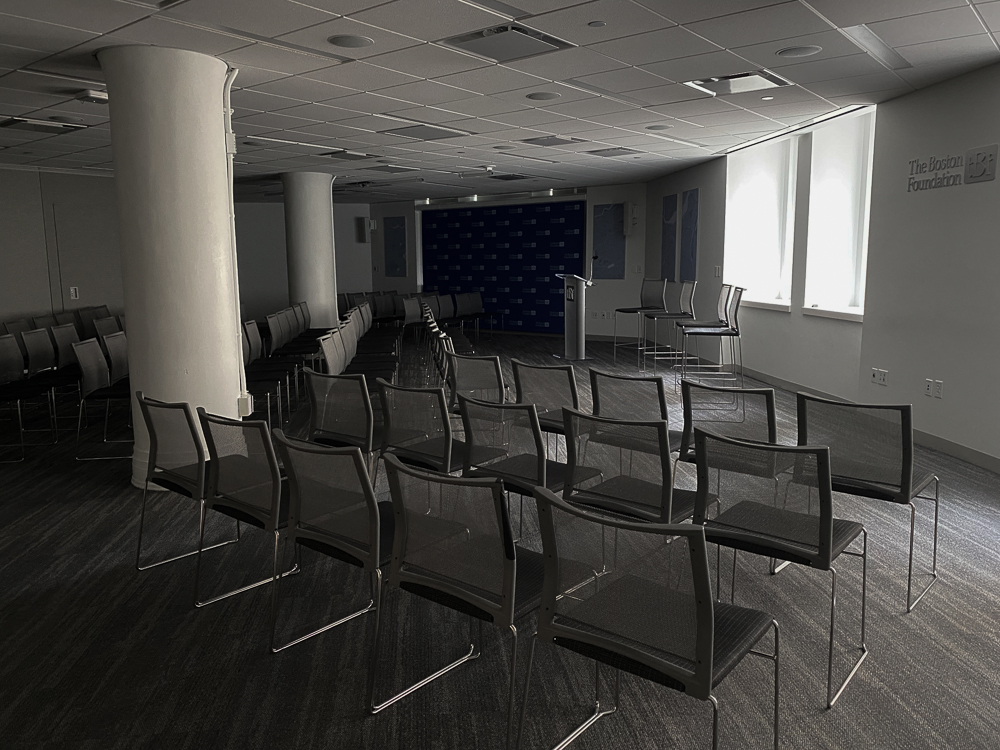The challenge of coronavirus
March 11, 2020
By Ted McEnroe, Senior Director, Communications and Digital Media
Over the past few days, a number of people and organizations have asked us about our approach to handling the coronavirus situation. We shared a version of the following with staff on March 10, and felt it would be appropriate to share more broadly.
As the number of cases of the coronavirus, COVID-19, continues to grow here in Massachusetts and around the world, we are taking precautions and making plans, as you all are, to manage the situation in a way that allows us to continue our work, help those in need of resources, and contribute to efforts to limit the spread of the virus.
What is the Boston Foundation doing right now?
First and foremost, we are taking available precautions to minimize the risk to our staff, visitors and nonprofits who utilize our space.
Having reviewed the latest information about coronavirus in Boston and nationally, and out of an abundance of caution, we are cancelling all external organizations’ meetings at the Boston Foundation offices at 75 Arlington Street until April 15, at which time we will reassess based on the most current information. We also are asking Foundation staff to move all meetings to phone or video conference whenever feasible. Convenings previously scheduled by the Boston Foundation of no more than 20 people may continue at the organizer’s discretion, but larger forums will be conducted via live stream.
While the risk in Boston remains low, this situation is changing very quickly and we are closely monitoring any local cases. Our top priority is the health and well-being of our staff and community partners, and we would rather take a more cautious approach that allows us to plan for and minimize disruptions than to be reactive. We hope to be part of the effort in preventing any new cases, to the best of our ability, and we are paying close attention to guidance from public health officials.
Internally, we have asked staff to reconsider meetings, use remote technology where possible, and practice the simple measures such as handwashing, regular disinfecting of surfaces and social distancing that are known to prevent the spread of viruses.
How might this affect your work with nonprofits and donors?
While we want to take adequate health precautions, our work must not stop. First, we know that the populations served by hundreds of the nonprofits we support in partnership with our donors are among those most at risk from any spread of COVID-19. And we know many nonprofits are having their own operations affected by the pandemic. We will be looking for opportunities to work with our own funds and in partnership with donors to support those most impacted by the virus and the resulting health and economic disruptions. While this is not an issue philanthropy can solve alone, we must play a strong role supporting nonprofit organizations that are dealing with the issues emerging from the COVID-19 situation.
Second, we can step up our role as advocates to ensure that the populations for whom safety nets have eroded over the past decades are not forgotten or actively disadvantaged by decisions made to protect the general population from the coronavirus. As the situation changes over time, we will continue to seek out the ways in which we and our donors can evolve to best serve the people we seek to serve, in Greater Boston, the nation and the world.
What is the long-term vision for addressing this situation?
The Boston Foundation, and indeed, the field of community foundations as a whole, emerged largely from the experience of the devastating 1918 influenza epidemic. In the century that has followed, we have improved our health care system and expanded our knowledge about how infectious diseases spread and how to control them. However, we are also a much more interconnected society, socially and economically, than we were a century ago, and we still face a city, nation and world divided by economic, health and opportunity gaps. If we are truly to create, as our mission states, a Boston where justice and opportunity are afforded to all, we must ensure that “justice and opportunity” definition includes access to health care and other critical needs at this important time.
And we must also recognize that the current situation is not solely a health care one. What might it mean for hourly workers? For immigrants? For the uninsured? How will the virus threat affect the critically-important United States Census 2020? Our courts? Our schools?
Many of these questions have no answers right now, but we know developing those answers will require innovation and action - from government, philanthropy and the public and private sectors as a whole – to ensure we are doing everything we can to make progress against COVID-19 and the longer-term issues we have sought to address for decades. We are here to do whatever we can, and support the work of other organizations and efforts to keep residents and visitors safe, ensure their health, give them access to needed services, and make sure all in Boston and beyond are treated with dignity and justice.

